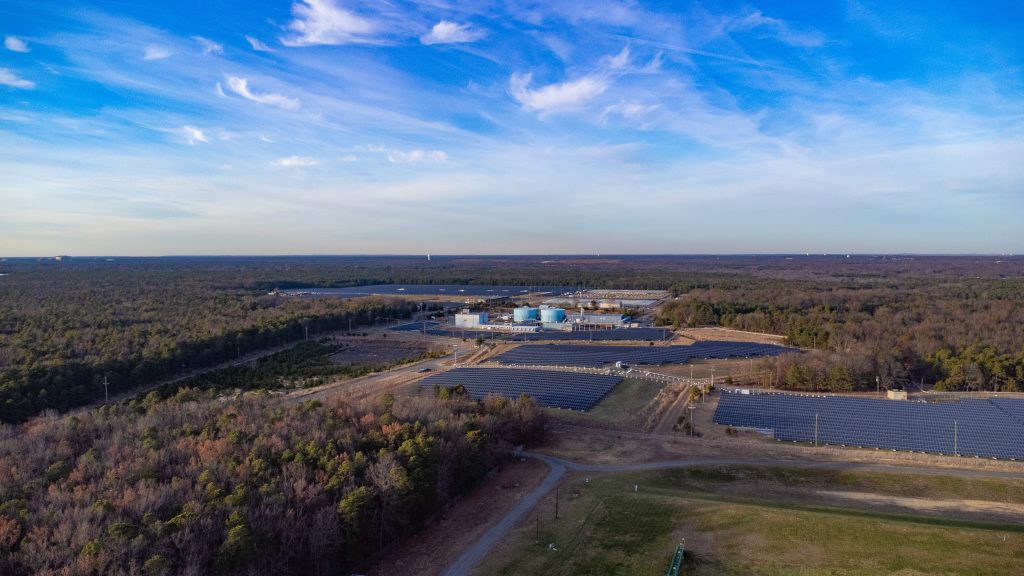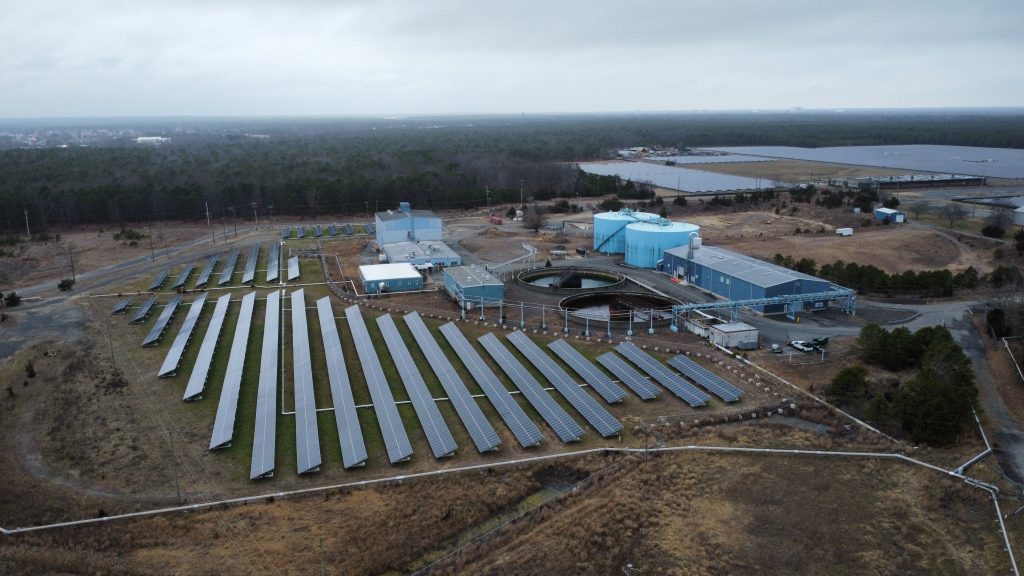The influential environmental advocacy group Save Barnegat Bay has accused the state of fostering an “intentional lack of transparency” surrounding the proposed settlement of claims at the former Ciba-Geigy chemical site – a federal Superfund property – in Toms River.
While the announcement of the settlement with BASF, the German company that inherited the site through numerous corporate mergers, was welcomed by some, it has drawn significant scrutiny ever since – including from local officials who claim they were kept in the dark about the proposal until it was announced in the press. Further, questions remain open as to whether BASF will retain the ability to eventually develop commercial or residential properties on the 250 acres it would keep under the settlement agreement.
“There is a seemingly intentional lack of transparency going on with this settlement,” SBB said in a statement. “Not enough is being done to ensure the public, especially the victims of this tragedy, get the due process and justice they deserve.”
A public meeting, with the support of local officials, has been scheduled by Save Barnegat Bay for Jan. 25 at Toms River High School North. The meeting, however, is being hosted by the environmental group rather than the state, which declined to hold any meetings during a public comment period that is required to be held before the settlement can be executed. The settlement has also drawn scrutiny from opponents of Gov. Phil Murphy who speculate BASF is receiving special treatment due to Murphy’s links to German corporate interests through his former appointment as U.S. ambassador to that country from 2009 to 2013.
The meeting, titled the “Superfund Site Speak-Out,” will be held Wednesday, Jan. 25 from 6-9 p.m. at Toms River North High School.
The settlement proposal, announced last month by the state Department of Environmental Protection, would preserve 1,000 acres of the former Ciba-Geigy plant, which would be turned into a public park with passive recreation.
As proposed, the site would feature public access, passive recreation, and natural resource interpretative and educational opportunities. The ecological restoration would include the creation of a freshwater wetlands complex, restoration of riparian areas, flood plain and wetland enhancements, creation of upland grasslands and pollinator habitat, public access trails and boardwalks for wildlife viewing and passive recreation.
In addition to walking, running and hiking opportunities for the public, an environmental education center would be constructed to provide natural resource interpretation programs for the public. If the project were to break ground next spring, plans call for the property to become open to the public in phases, and be complete within the next five years.
Officials have questioned the status of the remaining 250 acres of the site which BASF would continue to possess, as well as the lack of funds to compensate victims of the environmental damage and cancer cluster which was spurred by contamination at the plant. Rumors have swirled for years about proposed development at the site, however there have never been any formal applications for construction there aside from additions to an existing solar panel field. BASF was also successful in receiving a $20 million property tax refund from Toms River by claiming the site was functionally worthless, calling into question the prospect of whether the land is suitable for development.

An aerial view of the former Ciba-Geigy chemical site, Toms River, N.J., Dec. 5, 2022. (Photo: Daniel Nee)
Toms River Mayor Maurice “Mo” Hill, who said he was not consulted by state officials on the settlement, has proposed establishing a compensation fund for victims, and transferring the remaining acreage to Toms River municipal ownership.
“A fund to compensate the victims of the cancer cluster should be set up by BASF and administered by a trustee appointed by the township,” said Hill.
BASF took possession of the property in 2010 after it was already being remediated. The company itself never operated chemical manufacturing there, as plant operations ceased in 1990. But corporate owners inherit responsibility for environmental damage caused by firms they acquire. The proposed settlement would not have an impact on any of BASF’s remaining obligations under the federal government’s lead oversight under Superfund.

Advertisement

Ortley Beach & North Beaches
Landmark Ortley Beach Breakfast Spot Looks to Expand

Ortley Beach & North Beaches
‘Temporary’ 70-Foot Cell Tower on Route 35 in Ocean Beach OK’d to Return

Seaside Heights & Seaside Park
Beloved South Seaside Park Restaurant Will Remain Open As Developer Seeks to Demolish Block

Seaside Heights & Seaside Park
In Seaside Heights, A $50M Flagship Building Rises Over the Boulevard in a Famed Location

Police, Fire & Courts
Ocean County Sheriff Establishes Drone Command Center in Seaside Heights Amid New Video






